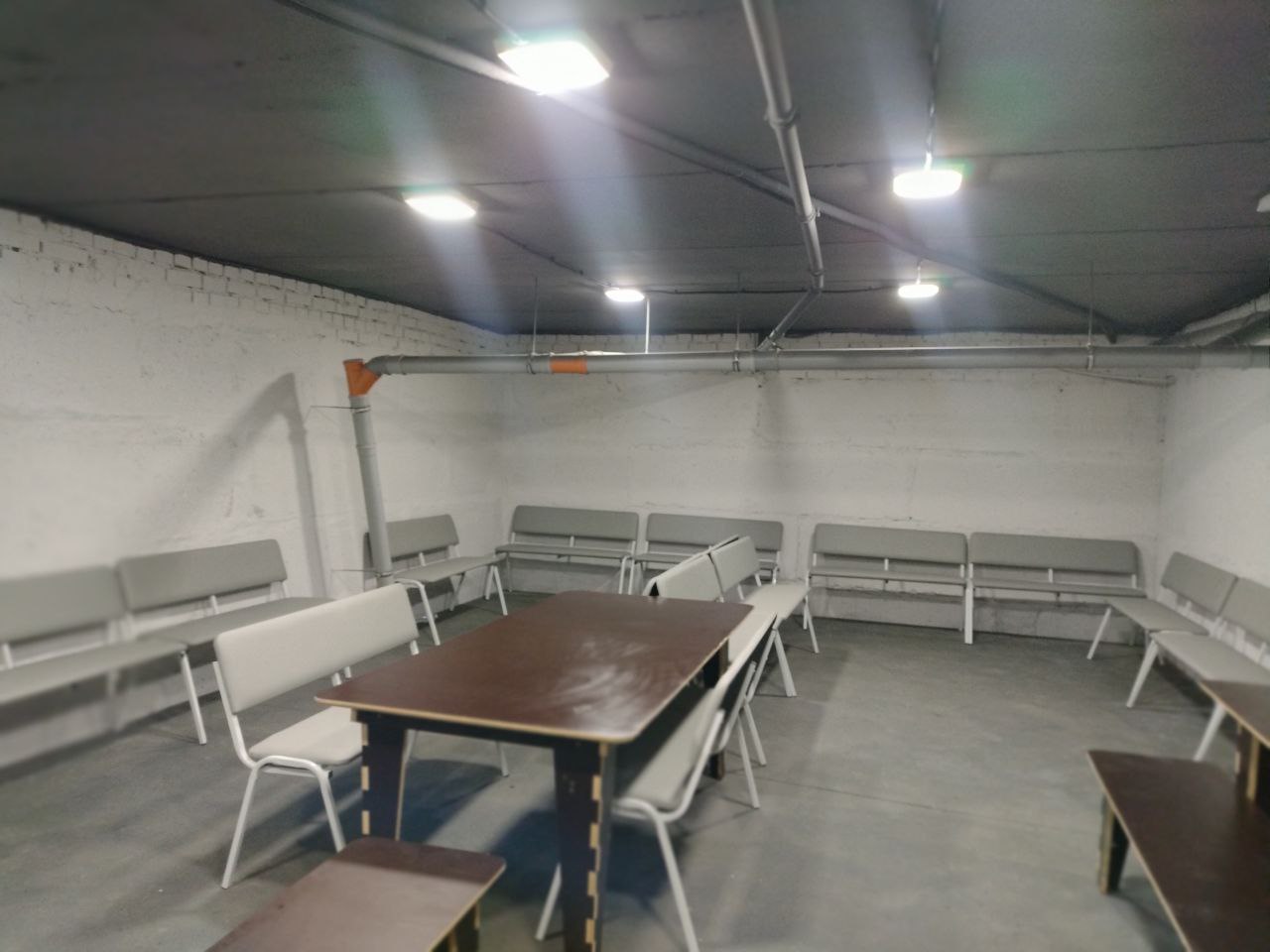
Another 400 school children of the lyceum of the Buchanskyi district in the Kyiv region, which survived the occupation, moved from the cramped and stuffy basement to a bright shelter! All thanks to the contribution of the PUMB team, which supported the KSE Foundation project “ZAKHYSTOK: Safe Education” and helped to create comfortable conditions for school children of the Dmytrivskyi lyceum.
There is no room that can be used for shelter in the Dmytrivskyi academic lyceum “Perspektyva”. Therefore, the only opportunity to resume offline education was the nearby Dmytrivskyi Medical Center – the medical institution has a large basement room, in which three rooms have been allocated for school children.
Thanks to PUMB, dark and damp rooms were turned into a bright shelter: the walls and ceiling were cleaned and painted, ventilation was installed, basic and emergency lighting was installed, which works for 6 hours – so now even in the event of a power outage, children will be in lighted rooms. Instead of bio-toilets, 2 full toilet cabins and hand sinks were installed. Also, 30 soft benches were purchased for children.
“The shelter was made very skillfully: the walls and ceiling were cleaned and painted, electricity was installed. I know how construction companies work in schools, this cannot be compared with the high-quality repairs that the charity foundation of the Kyiv School of Economics and PUMB did for us,” – says Oksana Halchyk, director of the lyceum.
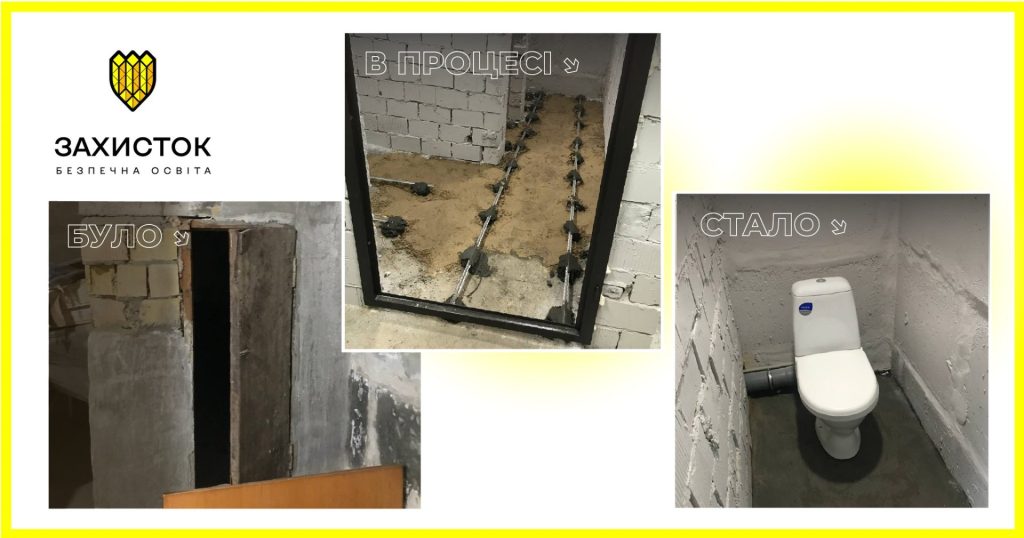
Due to the lack of proper shelter, the school children were forced to study in shifts at the local House of Culture for the entire last academic year: only 8 of the 26 classes of the lyceum could go to classes at the same time, while the others waited their turn, studying online.
“You cannot compare online and offline education. When kids were studying remotely, most turned off the cameras and just slept or played games. We had to call our parents so that they would at least somehow control it. So the parents were especially waiting for the repairs in our shelter to be finished – the House of Culture has a basement, but the children and I sat there like sprats, it was very cramped, uncomfortable and stuffy. When the repairs were finished, the children returned to the big school with joy and happiness. It seemed to them that there was so much space in the shelter, they hugged and took pictures,” – recalls Oksana Halchyk.
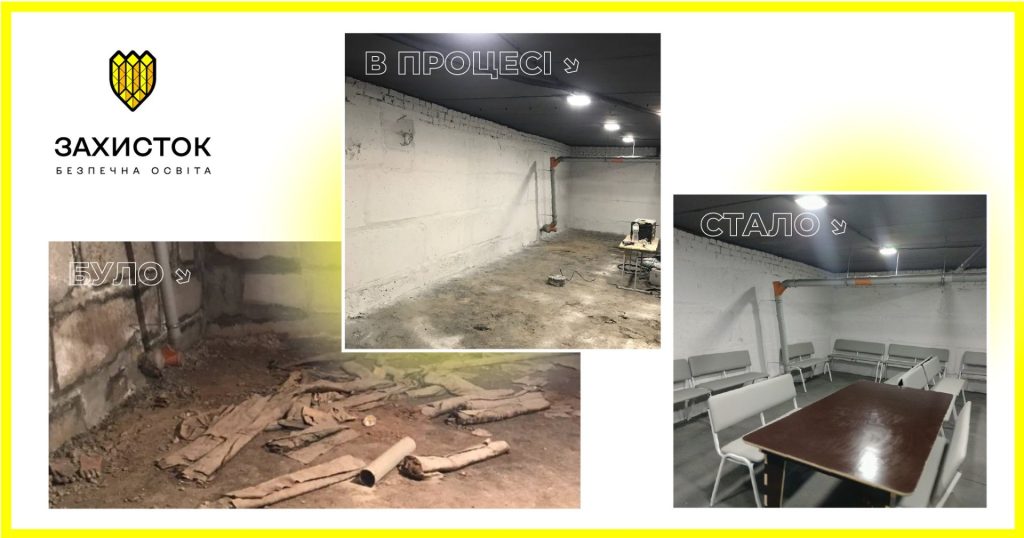
Now, with offline studying, children will be able to gain knowledge in a better way, and the school rugby team will finally return to training. Returning to school is especially important for inclusive classes – the director notes that such students need socialization and an individual approach:
“In one inclusive class, we have an adapted program, and in the other, children study according to the basic curriculum and manage everything! I am very proud of our Anzhelica – this year she finished the sixth grade and, despite cerebral palsy and the horrors of the war, finished the year with high grades and received a letter of commendation.”
Last year, the lyceum was badly damaged during the occupation of the village of Dmytrivka. The enemy broke down all the doors and ransacked the school: the russians took everything from computers to cookies and clothes from the school. All the windows were blown out by blast waves, and the roof was damaged by shrapnel from shelling.
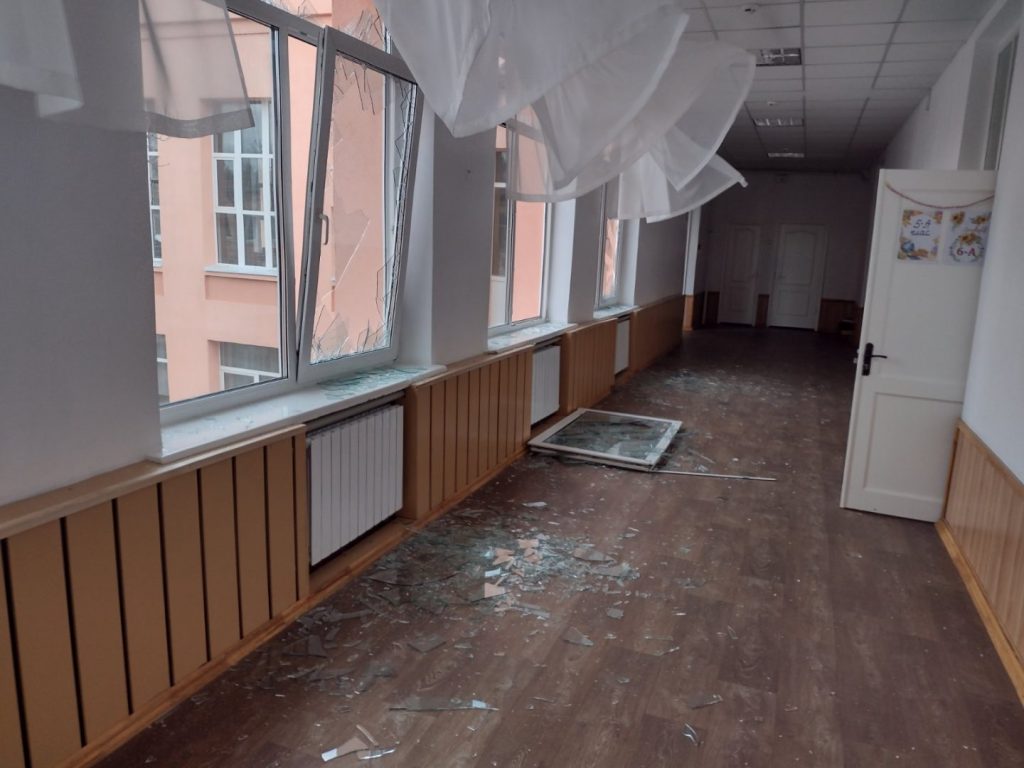
In 2014, the Dmytrivskyi lyceum became a shelter for Ukrainians who were forced to flee the war. The children and teachers who moved to the village in these years, decided not to leave their homes after the start of the full-scale invasion, says Oksana Halchyk: “They didn’t run away. They survived the entire period of occupation here, endured, suffered, but did not want to run a second time. Fortunately, their houses survived.”
Teachers note that having a comfortable shelter for children is not only an opportunity to go to school again, but also an important emotional component. Lots of them became witnesses of hostilities, that’s why today psychologists work at the school.
“Our former psychologist volunteered in the Armed Forces of Ukraine. She says that everything is fine, she advises us to work, rest, do not forget to have breakfast and drink coffee, and they will protect us. We are very proud of her. And now a teacher-psychologist Hanna, who came from the village near Oleshky in the Kherson region, works at the school. It was unbearable to live there, they began to fear for their lives, but they did not want to leave their home for a long time. In February of this year, they finally moved to us, and Hanna helps our school children survive all the difficulties of wartime,” – says Oksana Halchyk.
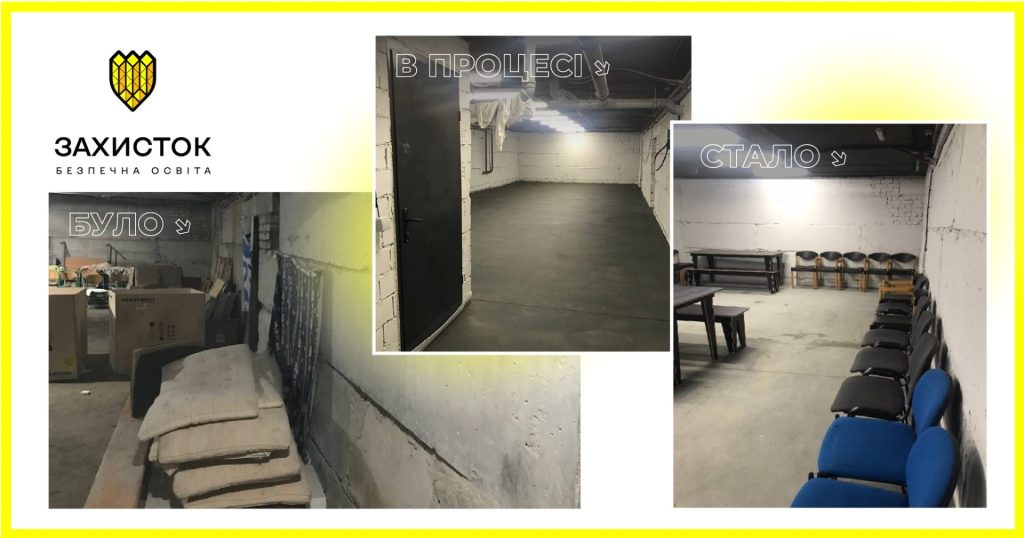
The KSE Foundation, together with PUMB, set up two shelters for schools in the Kyiv region that survived the occupation. Now their school children are preparing for the new academic year, which they will spend in their native educational institutions.
You can apply for a shelter by filling out the form at the link: https://foundation.kse.ua/en/safe-education/. On the same page, you can make a charitable contribution to improve the safety of schools in Ukraine.